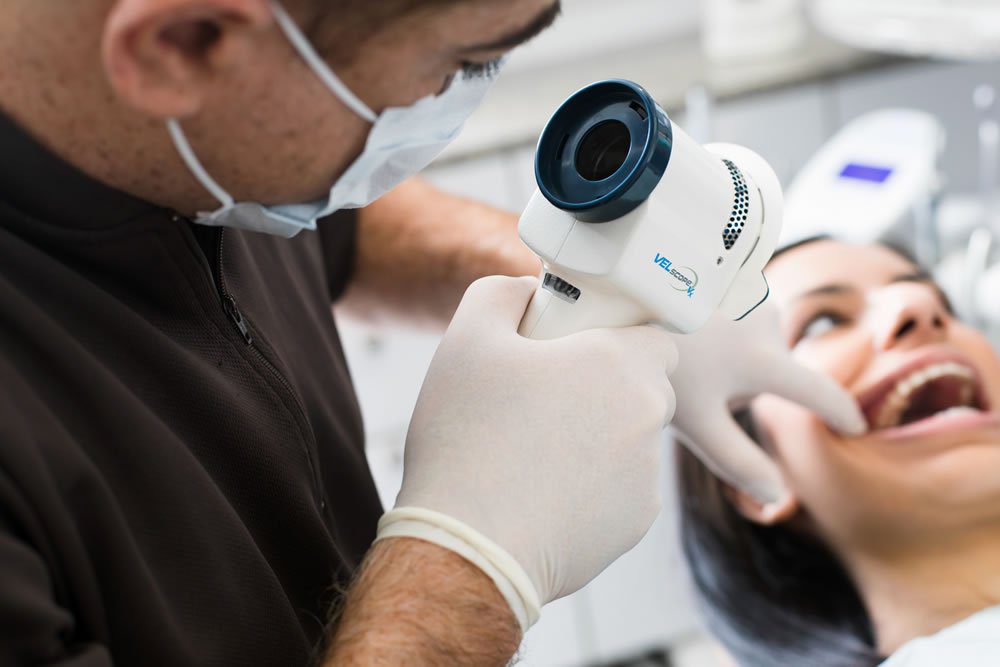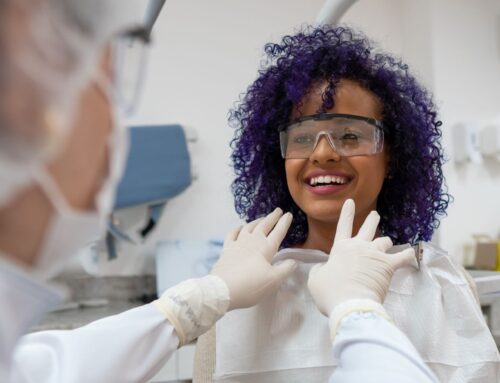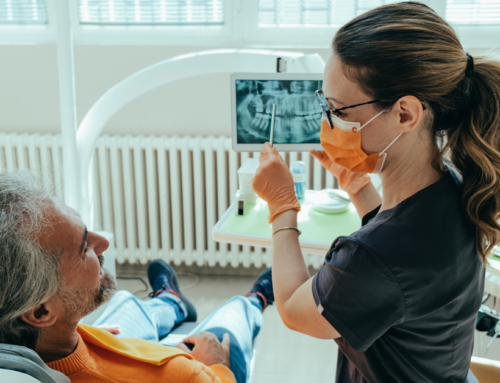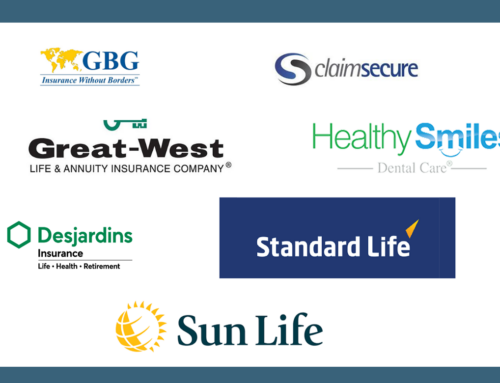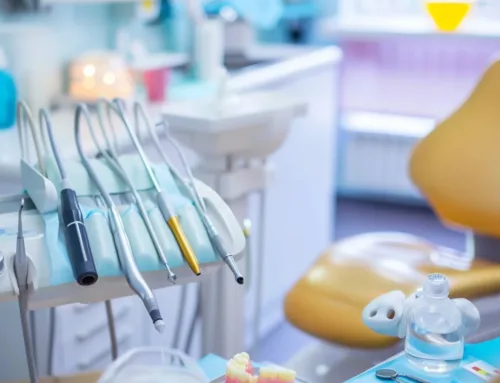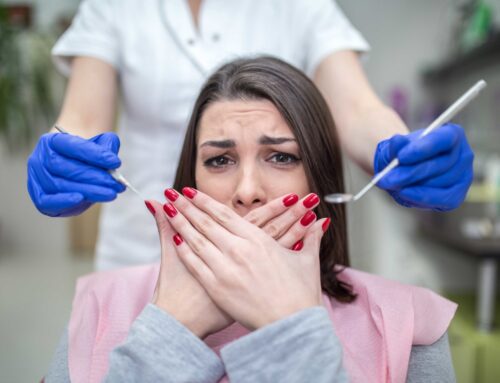Detecting Signs Of Oral Cancer With VELscope Technology
In order for a patient to obtain the most positive outcome when diagnosed with a form of oral cancer, early detection is essential. To this end, oral cancer screenings are becoming increasingly common in dental clinics, with advanced scanning devices helping dentists identify potential anomalies.
As medical research continues to advance, new forms of treating cancer of all types have emerged, improving the prognosis of patients all over the world. However, even with more effective cancer treatments being developed, early detection remains one of the most important factors in obtaining the best possible outcome. To aid in the detection of potential cancer in the mouth and oral cavity, VELscope intraoral scanning devices utilize innovative technology to help pinpoint abnormalities in the soft tissues of the mouth, gums, cheek and tongue.
While the possibility of developing oral cancer may seem rather remote, there are several risk factors that can increase the likelihood that a particular individual may experience some form of oral cancer in their lifetime.
What Are The Risk Factors For Oral Cancer?
Genetic Predisposition & Family Cancer Cases
If there have been past cases of cancer in the history of your extended family, then you may be at a heightened risk of developing some form of cancer in your lifetime simply due to a genetic predisposition. Depending on the types of cancer that have occurred in other family members, there may be a specific type that might be the highest risk for you, such as colon cancer or breast cancer.
The same can be true of oral cancer, so in the event that there have been examples of oral cancer in your family, this is something that should be discussed with your dentist at the earliest opportunity so that a proper oral cancer screening can be arranged. This can be coordinated to occur along with your next scheduled dental checkup, or you can choose to set a separate appointment if an earlier opportunity is available.
Lifestyle Factors & Unhealthy Habits
While genetics can certainly play a role in the likelihood of developing oral cancer, the highest risks come from lifestyle factors. Specifically, tobacco use has been shown to significantly increase the chances of developing cancer in the mouth, cheeks, tongue, gums, throat, and neck.
The harmful effects of tobacco use are well-documented, and the consequences can be severe to the overall health and quality of life of a person. While it goes without saying that tobacco should be avoided in all forms, it does bear repeating. If you smoke or use chewing tobacco, quitting immediately is essential to your health. There are many resources and support systems available to help make quitting work for you, so take advantage of them and make the process as easy and effective as possible.
In addition to tobacco use, alcohol consumption can also be a contributing factor to oral cancer development. Drinking should be kept to a minimum, or ceased altogether. As well as having positive effects on your oral health, stopping alcohol consumption will also improve sleep quality, among many other benefits.
Other factors related to lifestyle that can lower the risks of developing oral cancer include maintaining a healthy diet with plenty of fruits, vegetables, and other nutrient-rich foods. Regular exercise, stress relief, frequent health checkups, and minimizing sun exposure are all ways to reduce the risks of developing oral cancer, and other types of cancer, too.
At Georgian Dental, we offer holistic dentistry to our patients. This means that we go above and beyond, offering guidance and advice on all the interconnected elements of life that contribute to a healthy mouth, such as diet, lifestyle, and other aspects. Furthermore, we also reinforce and educate patients on how dental health can affect the general health and well-being of a person. It is through this holistic approach that patients will learn more about the relationships between a wide range of healthy habits, lifestyle choices, medical care treatments, and self-care techniques that all work together to enhance the quality of our lives.
Long-Term Dental Care History
Along with lifestyle factors, a persons’ long-term history of dental care can also influence how likely that person might be to experience cancer in their lifetime. Maintaining a diligent routine of comprehensive oral care at home, including brushing, flossing, and antibacterial mouthwash, is very important.
Also, keeping on track with the recommended schedule of dental checkups and professional hygiene treatments will help your dental care providers monitor the state of your mouth closely and observe any changes that may be taking place. This point is particularly relevant to the topic of oral cancer, as regular checkups allow any unusual growths, colour changes, or visible abnormalities, along with any random pain or discomfort the patient may be experiencing, to be promptly diagnosed and identified before they are able to progress to more severe conditions.
How Does Early Detection Improve Treatment Outcomes?
In the event that a patient does begin to develop some form of oral cancer, the earlier that it can be detected, the better the treatment outcome will be. This is because the rate at which cancer can grow and spread often accelerates over time, making it increasingly difficult to treat the longer it is allowed to persist.
Early detection of cancer generally means that the treatments will be less invasive, more localized, and faster to perform. Furthermore, the sooner treatment can be administered early in the cancers’ growth, the more effective the treatments themselves will be. To put it simply, it’s critical to catch cancer in the earliest stages of development when it is the weakest and least resistant to treatment.
In order to properly identify oral cancer as early as possible, special imaging and scanning equipment is necessary to pinpoint abnormalities that are not visible to the naked eye. Here at Georgian Dental, this is done using the VELscope Vx Intraoral Scanner, manufactured by LED Dental Imaging Technology Specialists.
How Does The VELscope Intraoral Scanner Work?
Most oral examination tools utilize reflected visible light to illuminate the spaces of the mouth and provide clarity to the dentist and hygienist as they perform their physical exams. However, cancer cells don’t always make themselves known quite so obviously. In many cases, these types of abnormalities are notoriously difficult to spot, and require a different kind of technology to identify.
During an intraoral examination, the VELscope Vx system emits a concentrated beam of blue light onto the surfaces of the tissue in the mouth. This light, when it makes contact with the oral tissue, has the effect of stimulating the tissue in such a way that it begins to naturally ‘fluoresce’, or glow. The visible glow of healthy tissue makes it possible to precisely identify any unusual cell growth, as these abnormal cells will be noticeably different in appearance under the specialized light emitted by the VELscope device.
This illustration from the VELscope website summarizes this concept visually:
Once any abnormalities that appear under the VELscope light are identified, the dentist can then take the next steps, such as a biopsy or other type of examination, to obtain more in-depth information on the nature of the unusual cells. Thanks to the early detection of abnormal cells using the VELscope, the next steps of analysis can proceed, and the proper treatment can be planned.
What Are The Signs And Symptoms Of Oral Cancer?
If you’ve never had an oral cancer screening in the past, we recommend speaking with your dentist about it, especially if you’ve been experiencing any of the common warning signs and early symptoms associated with oral cancer.
Contact your dentist as soon as possible to arrange for an exam if you or someone you love has noticed any of the following symptoms:
- Unexplained soreness, pain, or general discomfort in the mouth, tongue, jaw, or neck that frequently recurs or won’t subside, or any sudden, intense pain that occurs in these areas
- Frequent or chronic bleeding of the gums when brushing, flossing, or eating
- Unusual discolorations or growths on the gums, tongue, cheeks, or other mouth tissues
- Sores or lesions that will not heal or frequently recur
- Looseness of the teeth in the gums
- Challenges in swallowing, such as pain, discomfort, or weakness
Many of these symptoms can be associated with other serious dental health conditions as well, so while the diagnosis may not in fact be oral cancer, it is still of utmost importance to obtain the necessary care and treatment to prevent worsening of the condition. It’s our goal here at Georgian Dental to not just treat dental problems, but to establish a proactive relationship with our patients to ensure their mouth remains healthy, strong, and resilient.
Get Your Dental Health Questions Answered Today
If you’ve got any questions about oral cancer, or any other dental health condition, we welcome the opportunity to speak with you and provide the vital information you need to make the right choice for your health. Our team of experts will arrange an appointment at your convenience so you can have a thorough dental examination and obtain a comprehensive report on the state of your dental health. Contact us today to get started. We look forward to your next visit!
Appointment Request
If you’re interested in any of our procedures, and would like to meet with one of our dentists to discuss options, costs and get additional information, complete this short form and we’ll give you a call to arrange for a no-obligation appointment at our Barrie clinic.
